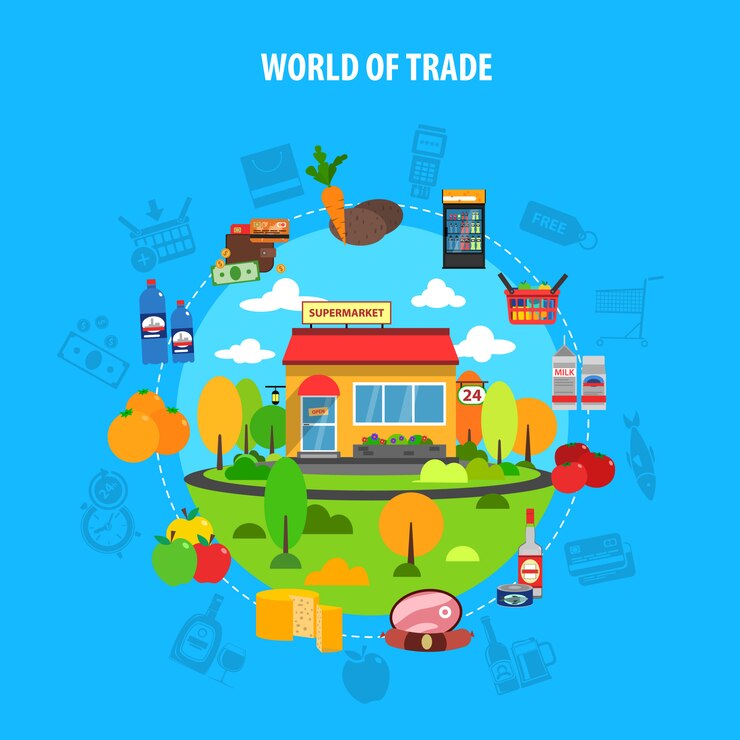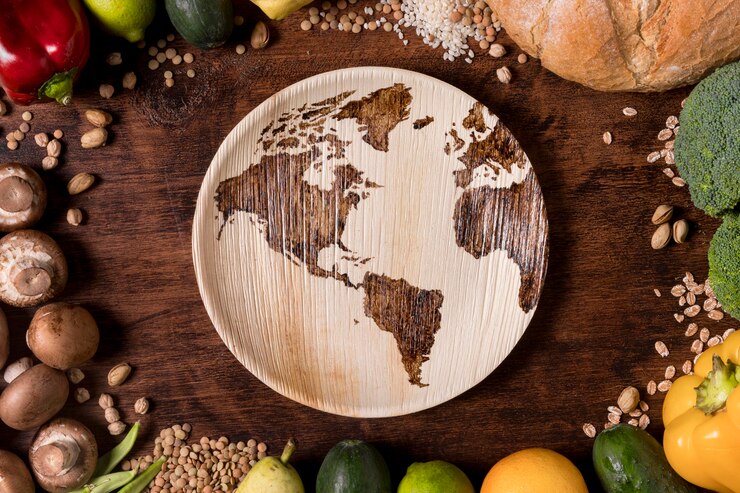Globalization has profoundly impacted the agricultural sector, shaping production, trade, and consumption patterns worldwide. While trade can facilitate access to diverse food sources and promote economic growth, it also raises concerns about food security, environmental sustainability, and social equity. Here, we’ll delve into the dynamics of trade and globalization in agriculture and explore their implications for farmers, consumers, and the environment.

1. Globalization and Agricultural Trade:
Globalization has led to the liberalization of agricultural markets, facilitating the flow of goods, capital, and information across borders. Agricultural trade encompasses the exchange of commodities such as grains, fruits, vegetables, meat, and processed foods, as well as inputs like seeds, fertilizers, and machinery. Trade agreements, tariff policies, and market dynamics influence the patterns and volumes of agricultural trade between countries and regions.
2. Impacts on Smallholder Farmers:
While agricultural trade can create opportunities for smallholder farmers to access international markets and increase income, it also poses challenges. Small-scale producers often face barriers such as lack of access to credit, infrastructure, and market information, limiting their ability to compete with large-scale agribusinesses. Trade liberalization can also expose farmers to volatile global prices, import competition, and displacement from local markets.
3. Environmental and Social Impacts:
Globalization of agricultural production and trade can have significant environmental and social consequences, including:
- Deforestation and habitat destruction: Expansion of agricultural land for export crops such as palm oil, soybeans, and beef can lead to deforestation, loss of biodiversity, and ecosystem degradation.
- Soil degradation and water pollution: Intensive agricultural practices, monocultures, and excessive use of agrochemicals can degrade soil fertility, contaminate water sources, and harm aquatic ecosystems.
- Displacement of rural communities: Large-scale agribusiness investments, land grabs, and export-oriented production models can displace indigenous peoples, smallholder farmers, and rural communities, leading to social conflict, poverty, and food insecurity.
4. Trade Policies and Governance:
Trade policies and governance frameworks play a critical role in shaping the impacts of agricultural trade on food security, sustainability, and equity. Key considerations include:
- Balancing trade liberalization with measures to protect domestic food production, promote rural development, and safeguard farmers’ livelihoods.
- Ensuring that trade agreements prioritize social and environmental sustainability, respect human rights, and promote equitable distribution of benefits among trading partners.
- Strengthening transparency, accountability, and public participation in trade negotiations to ensure that trade policies reflect the interests and values of diverse stakeholders.
5. Alternatives and Solutions:
Alternative trade models such as fair trade, agroecology, and food sovereignty offer alternatives to mainstream globalization and promote more equitable and sustainable food systems. These approaches prioritize:
- Fair prices and terms of trade for smallholder farmers and agricultural workers, ensuring that they receive a fair share of the value generated along the supply chain.
- Agroecological farming practices that enhance biodiversity, soil health, and resilience to climate change, while reducing reliance on chemical inputs and monocultures.
- Local and regional food systems that prioritize community self-reliance, food sovereignty, and cultural diversity, supporting small-scale producers and fostering resilient food economies.
In conclusion, the globalization of agriculture presents both opportunities and challenges for sustainable development. By addressing the social, environmental, and governance dimensions of agricultural trade, we can work towards a more equitable, resilient, and sustainable food system that benefits farmers, consumers, and the planet.
Stay tuned for our next exploration into another critical topic shaping the future of agriculture and sustainable food systems.
